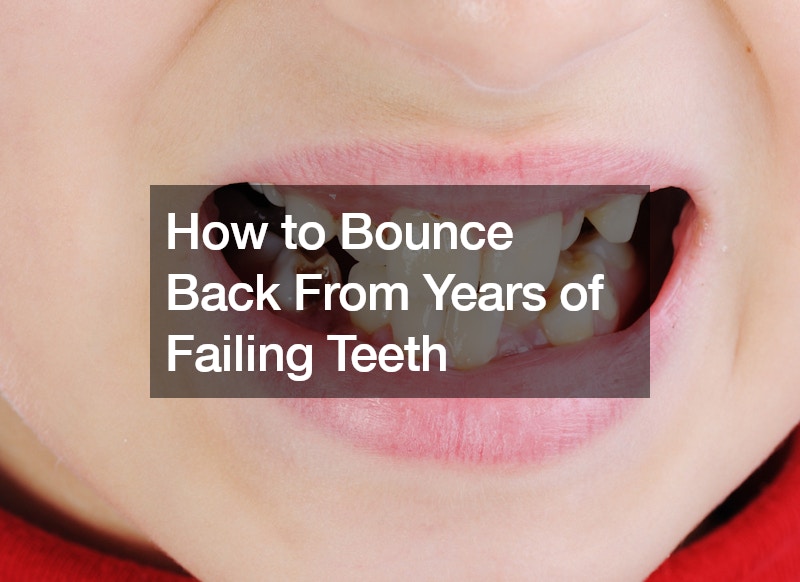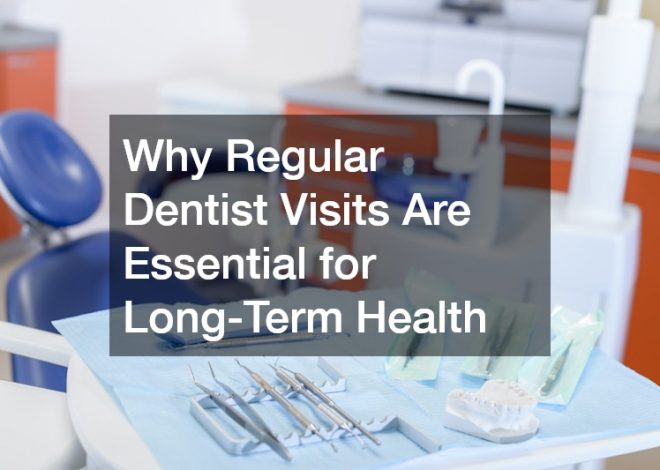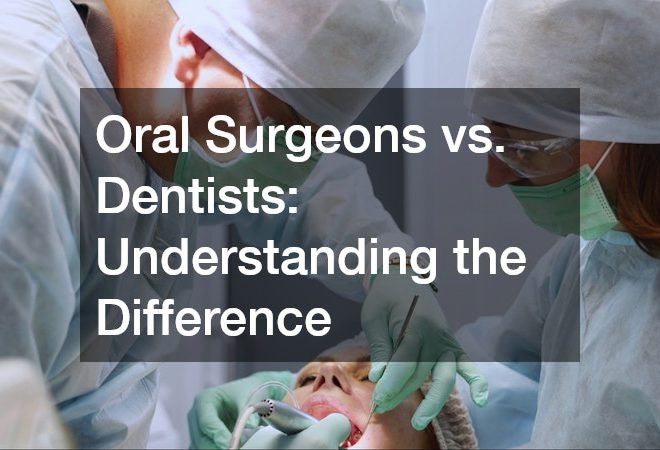
How to Bounce Back From Years of Failing Teeth

Did you know that 13.2% of adults above 65 years have suffered complete tooth loss, as reported by the CDC? Moreover, according to a 2016 NIH report, adults aged 20-34 have an average of 27 teeth remaining, while those aged 35-49 have 25.5. These figures reflect how tooth loss is a common problem that can happen to anyone despite their age.
Due to genetics, neglect, poor hygiene, and unhealthy lifestyles, you may be among those who have suffered the consequences of fallen teeth. This may have negatively impacted your physical appearance, confidence, and overall health. However, the good news is that you can still bounce back despite years of falling teeth. Here’s a look at some expert tips to help you recover after years of tooth loss.
Check the Density of Your Teeth and Jaw Bone

Having low-density teeth and jaw bones is often the main reason for falling teeth. As the jaw bone loses its density, it becomes difficult for the teeth to remain strong and intact. However, various reasons may contribute to lower bone density.
One of the most common reasons for low-density jaw bone is osteoporosis. Osteoporosis is a medical condition where bones become brittle and weak due to tissue loss. Often prevalent in older women, osteoporosis results from hormonal changes, vitamin D, and calcium deficiency. According to the International Osteoporosis Foundation, it affects one in five men and one in three women over 50 years. Individuals with this condition often end up losing most of their teeth.
Therefore, the first thing you ought to do is to have your teeth and jawbone checked by a dentist. Your dentist will conduct diagnostic tests such as X-rays to assess the density of jaw bone. Based on the results, they will advise you on the best way forward.
If osteoporosis is the cause of your condition, your physician may prescribe supplements and medication to help improve bone strength. Additionally, you may need to incorporate calcium-rich foods into your diet, such as milk, cheese, and leafy greens. However, if this is not the cause, other options may help you bounce back from falling teeth.
One of these options is getting bone grafts. Bone grafting is a procedure that involves replacing lost bone tissue with artificial or donated bone. It helps to strengthen the jawbone and provide support for the remaining teeth. It also creates a solid foundation for dental implants. These are permanent replacements for missing teeth, which help you get your smile back with a mouthful of teeth.
Besides teeth loss, low-density jaw bone causes other conditions like crooked teeth. With already few teeth, these crooked ones put much pressure on the remaining teeth, eventually causing them to fall off. To avoid this, your dentist may recommend orthodontic procedures as a remedy. Orthodontics includes using braces to correct misaligned teeth and improve overall jaw health.
Get Regular Cleanings and Improve Home Cleaning

Another major cause of falling teeth is poor oral hygiene. Failure to brush, floss, and rinse often leads to the build-up of plaque and bacteria in the mouth. This build-up leads to gum disease, which erodes bone tissue and weakens teeth. Such teeth may end up becoming loose and eventually fall out. To prevent more teeth loss, you must maintain good oral hygiene practices. Such practices include flossing and brushing your teeth at least twice every day. It is also beneficial to use antibacterial mouthwash after brushing. Dentists also recommend upgrading your toothbrush to an electric toothbrush. Electric toothbrushes make hard-to-reach areas more accessible and are more effective at removing plaque than manual brushes.
A usually overlooked practice is replacing old toothbrushes. How long have you been using your toothbrush? The Centers for Disease Control and Prevention (CDC) recommends changing toothbrushes every three months. Past that period, the bristles become worn out and frayed, reducing their effectiveness in removing plaque and food debris. In fact, if you get an infection, you should replace the toothbrush immediately to avoid reinfection.
However, even with good home care, regular dental cleanings by a dentist are also vital. Dentists typically use special tools and better techniques for dental health than regular brushing. They also check for any signs of gum disease, cavities, or other issues that may lead to falling teeth. Healthline recommends you visit dental offices for cleaning at least once every six months.
Additionally, improving your home cleaning techniques can also go a long way in preventing tooth loss. This measure includes brushing in gentle and circular motions rather than vigorously and using a soft-bristled toothbrush. It also involves replacing your toothbrush every three months and staying away from hard foods or objects that may cause damage to teeth.
Lastly, having a clean and welcoming space makes developing good oral hygiene habits easier and more enjoyable. Therefore, consider removing unnecessary counters and shelves that make the space feel crowded. Conducting other bathroom updating projects, such as improving the lighting, could also help the space feel more welcoming. Add shower wall panels to make cleaning easier and any other personal touches that will make it more enjoyable for you.
Understand Your Traumas

Sometimes, teeth loss results from more than just low bone density or poor oral hygiene. It may result from poor lifestyles caused by emotional or even physical traumas. For instance, individuals dealing with traumatic pasts often find themselves engulfed in drug abuse. Some of these drugs, like methamphetamines, can completely ruin your teeth structure.
A drug like methamphetamine causes dry mouth, which in turn leads to tooth decay. It also causes gum disease that may lead to falling teeth. Other drugs that can have a similar effect on your dental health include cocaine and heroin. Smoking is also linked to poor dental health and can increase the risk of gum disease, tooth decay, and loss of teeth.
Similarly, emotional traumas such as severe anxiety or depression may lead to teeth grinding. This action can result in fractured, chipped, or loose teeth that often require extraction. Therefore, it is vital to avoid such a situation by addressing the underlying mental health issues by seeking professional help. Trauma therapists and counselors can help you understand and effectively deal with past traumas. By understanding your traumas, you will develop better coping mechanisms. These will help you manage your symptoms better while caring for your dental health. Ultimately, you will easily bounce back from years of tooth loss and damage.
Physical traumas like accidents or injuries can also result in tooth loss. The impact may cause damage to the jawbone and surrounding teeth, causing them to fall off. In the case of physical trauma, it is crucial to seek immediate medical attention. Your dentist will assess the damage and provide treatment options. If you have teeth completely knocked out, it may be possible to reattach them if done within an hour after the injury.
If your physical trauma is a result of an accident, you may need to sue for compensation. In such cases, it’s important to seek legal advice from a personal injury or disability attorney. They will help you understand your rights and ensure that you receive the appropriate compensation for any expenses incurred due to tooth loss.
Ensure Poor Dental Health Hasn’t Caused Related Problems

It’s essential to ensure your poor dental hasn’t caused other related health issues before attempting to bounce back from years of falling teeth. There are various body systems connected to dental health. Therefore, any infections or diseases in the mouth can spread to other body parts. For instance, research has proven a link between infections from gum disease and heart disease, stroke, and diabetes.
According to Harvard Health, bacteria that cause periodontitis and gingivitis can travel through blood vessels to other body parts. As it travels, the bacteria inflame the blood vessels, causing significant damage to the tissues. Ultimately, this damage may lead to the formation of tiny blood clots, stroke, and heart attack.
For these reasons, dentists recommend going to a heart clinic for check-ups. These check-ups can help you identify and deal with possible heart issues due to poor dental hygiene. These bacteria can cause illnesses like endocarditis. This is an infection of the heart’s inner lining that often results in heart attacks. By ensuring your heart and body are well, you can have the space to bounce back even after years of falling teeth
Besides heart attacks, poor dental health can cause digestive problems. This issue happens because poor dental health introduces harmful bacteria into the stomach. These bacteria disrupt the balance of the microbiome in the gut, causing issues like bloating and diarrhea. In severe cases, it could also lead to inflammatory bowel disease (IBD), according to the National Institutes of Health.
If you have experienced years of teeth loss, you’re likely to have at least one of these problems. Therefore, it’s advisable to consult with a gastroenterologist to assess the state of your digestive system. They provide treatment options and advice on maintaining good dental health to prevent further complications.
Identify the Source of the Issue
After taking all the above steps, it’s not time to narrow down the exact cause of dental issues. Some common causes of tooth loss include gum disease, tooth decay, and physical injuries. If you have been battling one of these conditions, they are likely the source of your issue. However, other factors, such as hormonal imbalances or poor nutrition, may also contribute to teeth loss. It’s essential to consult with a dentist to assess any underlying conditions that may be causing damage to your teeth.
Understanding the exact cause of your falling teeth allows you to take the right steps to remedy your condition. This information will also help you take action to prevent any further tooth loss. One of the most recommended solutions is dental correction procedures. These are procedures that help restore the structure of your teeth. They include dental implants, bridges, and dentures.
Dental implants are a great option for those who have experienced severe teeth loss. This dental procedure involves surgically implanting artificial tooth roots into the jawbone. Afterward, dentists attach artificial teeth made from acrylic resin onto these roots. The result is a natural-looking set of teeth that function just like natural ones. For those with multiple missing teeth, bridges, and dentures may be a better option to consider. These prosthetic devices can replace several missing teeth at once, providing support and function to the remaining teeth. By consulting with a dentist, they can assess your specific needs and recommend the best dental correction procedure for you.
However, if your teeth loss is due to drug abuse, it is important to address the root cause. Before undergoing any dental correction procedures, you must overcome your drug abuse. This measure will help ensure that your new teeth are not at risk of damage due to substance abuse. The new journey starts at an addiction treatment clinic. According to Statista, there are about 17,353 addiction treatment clinics that help people overcome substance abuse. Depending on the substance you are battling, the treatment may involve detoxification or therapy. Once complete, it is important to maintain a healthy lifestyle and good dental hygiene practices to prevent any further teeth loss.
Lawyers may also be valuable if the teeth loss resulted from someone else’s fault. For instance, if you have lost your teeth due to an accident caused by another person’s negligence, you may be entitled to compensation. The compensation sum will pay for your medical expenses and any other costs related to your teeth loss. It’s essential to consult with a lawyer who specializes in personal injury cases. Such a lawyer will guide you through the legal process, ensuring you receive the appropriate compensation.
While bouncing back from years of falling teeth may seem daunting, it is attainable with the right knowledge. You can regain a healthy smile by taking proactive steps that address any underlying causes and seeking professional help when needed. Endurance is key as it’ll take time to see results from any treatment or lifestyle changes. However, the result is worth it – a confident smile and a healthier body.


